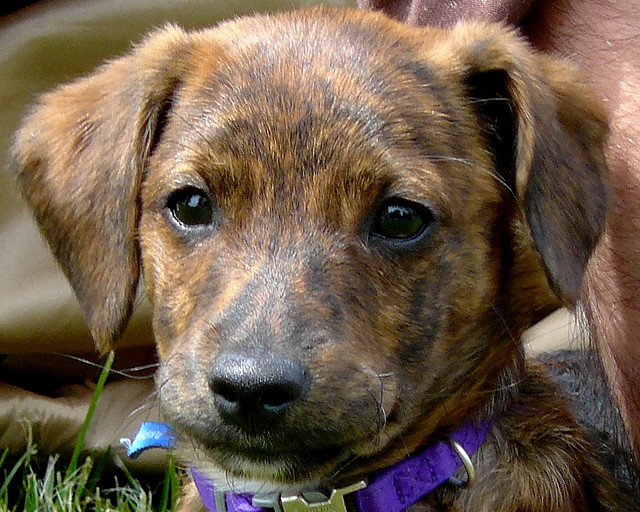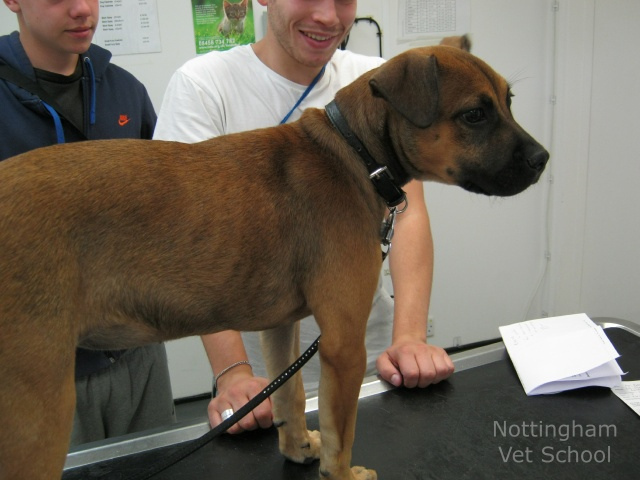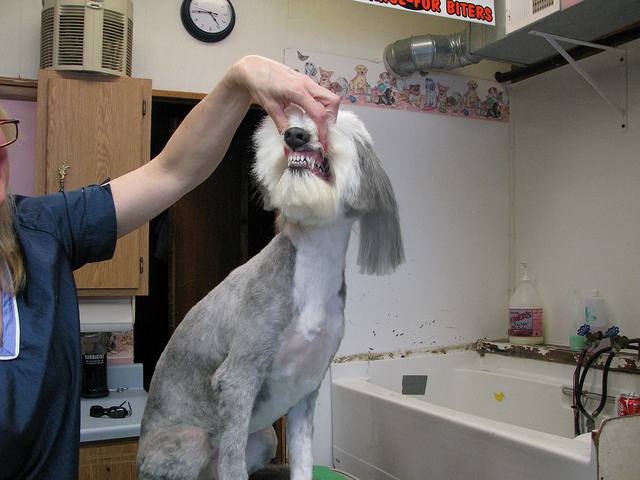ADVERTISEMENTS
Sometimes with the excitement of a new puppy you forget what you need to do to initially take proper care of them. You might think you have everything covered or not even know where to begin. First things first, you should always decide on a Vet just in case your puppy needs any urgent care before their first check up.
 What next steps do you feel are the most important?
What next steps do you feel are the most important?
I decided to find and share the 10 best tips for new puppy parents:
- Spay or neuter your dog. This reduces the chances of cancer of the reproductive organs and is recommended by veterinarians to pet owners who do not plan on breeding their pets.
- Provide your dog a collar with ID tags and discuss microchipping with your veterinarian or shelter. You can’t guarantee that your dog won’t ever get out of your house or yard, whether by accident, during a natural disaster, or by theft.
- Take him to your veterinarian for a complete physical. Puppies need vaccinations every 3-4 weeks until they’re 16 weeks of age.
- Discuss your puppy’s diet with your veterinarian, as it can vary by size and breed. Studies show between 25-40 percent of household pets are overweight, and pet obesity can lead to serious health issues.
- Housebreaking can be a time-consuming process. A puppy should be taken outside every two hours, up to six times a day, particularly after meals. Crate training or limited roaming access in a small, gated area works well, as puppies usually don’t soil where they sleep. Look for signs, such as circling, that your puppy has to go. Don’t punish him for soiling after the fact.
- Crate training provides your puppy with a secure, safe area where he can retreat when he’s tired. Put in some soft bedding and even a treat to help coax him in at first so he learns it is a good place to be. Start with short stints: Puppies 8-16 weeks old should not be kenneled for more than an hour, except for up to six hours at night. Puppies under six months should not be kenneled for longer than two to three hours during the day. An adult dog can be kenneled for up to eight hours, but he needs to be exercised at least 30 minutes to an hour beforehand.
- Training is one of the most important things you can do for your pet—and your family. Puppies need to learn boundaries and need to know you’re in charge. A group class gives him the socialization he needs to build relationships with people and other dogs.
- Puppy proofing is very similar to baby proofing—keep your puppy away from anything that could potentially hurt him. Purchase electrical cord protectors from your local hardware store. Remove poisonous plants and toxins. Puppies love to chew, so it’s important to redirect them to their safe chew toys, such as Nylabones or Kongs, that won’t fragment and possibly lead to choking. Never leave young children unattended with your puppy, and teach them to touch him gently.
- Dogs are social animals and enjoy being part of the pack—which is now you and your family. The more people he comes in contact with, whether it’s in your home or out and about, the more comfortable and well behaved he will become. It is also important to get an early start socializing your puppy with other dogs so he learns how to get along with them.
- Taking your puppy new places is a great experience for both of you, as is car safety. Puppies like to explore, which is distracting while you are driving. Put your pet in a crate or secure him with a dog seat belt harness.
Don’t forget puppies need vaccinations every 3-4 weeks until they’re 16 weeks old. Also, really enjoy the relationship you are building with your new best friend. You might be the only one they ever have.
Image Source: sea turtle on Flickr
ADVERTISEMENTS





Leave a Reply